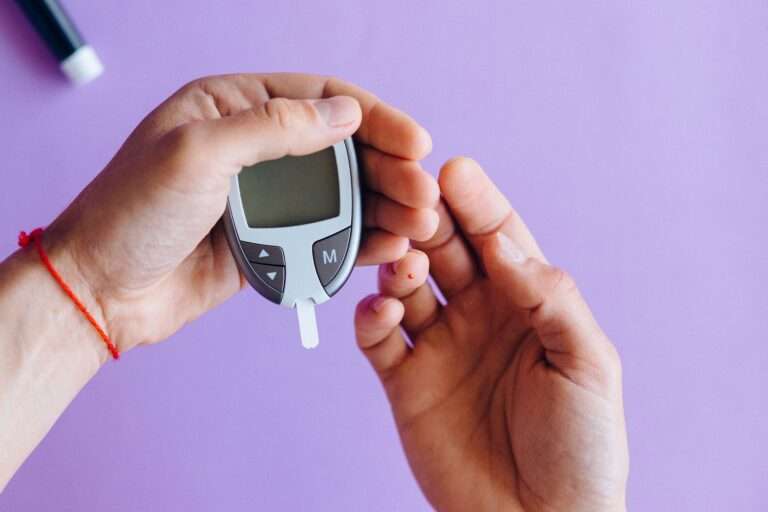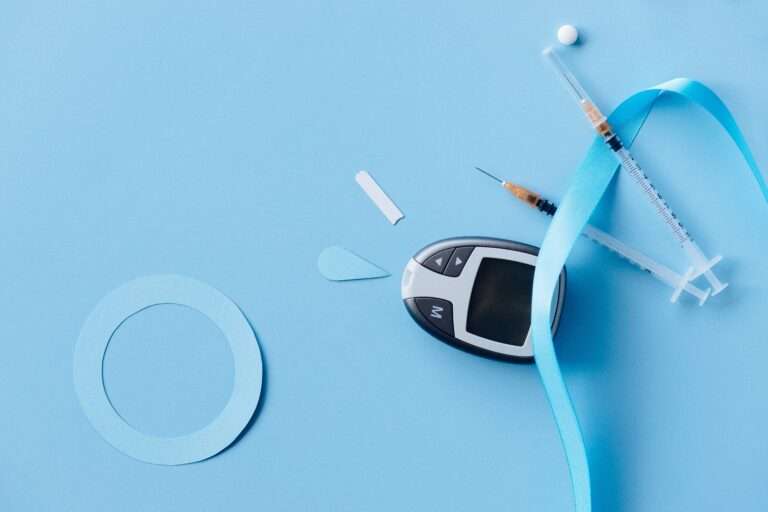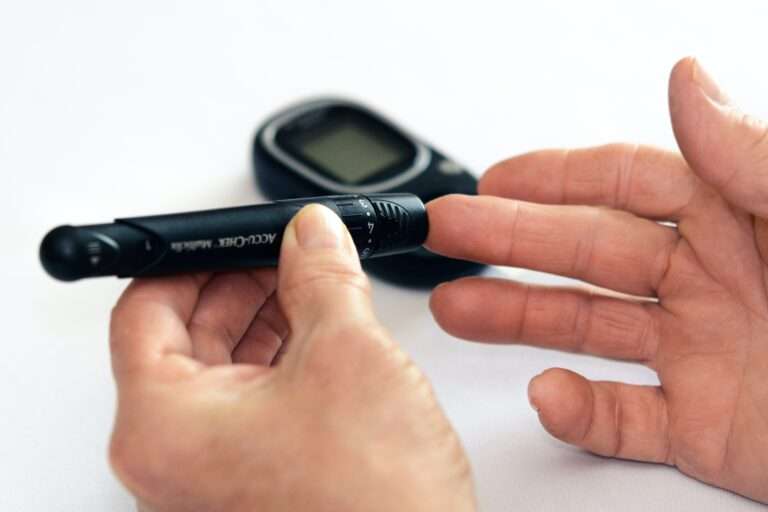Table of Contents
ToggleIntroduction
Diabetes is a metabolic condition that affects millions of people throughout the world. Managing blood sugar levels is crucial for diabetics, and various strategies have been explored to aid in this process. One such avenue is the role of magnesium in diabetes management. However, there are several myths surrounding the relationship between magnesium and diabetes.
This article will delve into the top three myths, debunking them to uncover the truth about magnesium and its impact on diabetes.
Myth 1: Magnesium has no impact on blood sugar
Contrary to this belief, numerous studies have demonstrated a strong connection between magnesium levels and blood sugar regulation. Magnesium plays a crucial role in insulin secretion and function, the hormone responsible for controlling glucose levels. Insufficient magnesium intake has been linked to increased insulin resistance, where cells become less responsive to the effects of insulin. Adequate magnesium levels are essential for optimal insulin sensitivity, making it a key nutrient for diabetics.
Myth 2: All magnesium supplements are created equal
Not all magnesium supplements are created equal, and diabetics must choose the right one. Various forms of magnesium supplements exist, such as magnesium oxide, magnesium citrate, and magnesium glycinate. Each form differs in terms of bioavailability and absorption rates. For individuals with diabetes, magnesium glycinate is often recommended due to its increased absorption and bioavailability. Consulting with a healthcare professional can help determine the most suitable magnesium supplement for individual needs.
Myth 3: Increasing magnesium intake is unnecessary for diabetics
While magnesium deficiency is prevalent in the general population, it is even more common in individuals with diabetes. This is primarily due to several factors, including increased urinary excretion of magnesium and insufficient dietary intake. Moreover, the demands on magnesium may be higher for diabetics due to chronic inflammation, oxidative stress, and altered magnesium metabolism. Therefore, increasing magnesium intake can be extremely beneficial for individuals with diabetes, as it might help improve glucose control and decrease the risk of complications associated with the disease.
Magnesium supplements

It helps you to regulate blood pressure, blood sugar, and cholesterol levels.
Reduces cravings for sweets and junk food.
Prevents the negative consequences of type 2 diabetes by boosting healthy blood flow and activity.
Safe, powerful, and simple to use.
It helps you avoid heart attacks by improving cardiac characteristics.
It hastens the recovery of normal sugar levels while increasing strength.
The connection between magnesium and insulin resistance

Magnesium plays a vital role in insulin signaling pathways, facilitating the uptake of glucose into cells. Low levels of magnesium can impair these pathways, leading to insulin resistance and subsequent hyperglycemia. By ensuring optimal magnesium levels, diabetics may potentially enhance insulin sensitivity, improving their ability to regulate blood sugar levels effectively.
Magnesium has anti-inflammatory and antioxidant homes. Chronic irritation and oxidative pressure are not unusual in insulin resistance and can contribute to its development. Magnesium’s anti-inflammatory consequences can help alleviate those factors and potentially enhance insulin sensitivity.
Magnesium affects adipose tissue (fat) characteristics, which play a position in insulin resistance. Low magnesium ranges were associated with multiplied fat accumulation, especially visceral adiposity, that’s linked to insulin resistance and other metabolic issues.
Understanding the optimal magnesium intake for diabetics

Determining the optimal magnesium intake for diabetics is essential to harness the potential benefits. The Recommended Dietary Allowance (RDA) for magnesium varies depending on age, sex, and pregnancy status. For adults, the RDA ranges from 310 to 420 milligrams per day. However, it’s important to note that these recommendations are general guidelines and may not account for individual variations and specific diabetes-related needs. Consulting with a healthcare professional or registered dietitian can help determine the appropriate magnesium intake for each diabetic.
- The recommended each-day allowance (RDA) for magnesium varies based on age, sex, and lifestyle.
- For a grownup man (a long time 19-30 years): The RDA is around four hundred-420 mg of magnesium per day.
- For grownup women (ages 19-30 years): The RDA is around 310-320 mg of magnesium according to day.
- For adults over 30 years: The RDA remains similar to the younger grownup range, with moderate versions based totally on sex.
Natural food sources of magnesium for diabetes

Obtaining magnesium from natural food sources is an excellent way for diabetics to optimize their intake. Foods rich in magnesium include nuts and seeds (such as almonds and pumpkin seeds), leafy green vegetables (like spinach and kale), whole grains (such as quinoa and brown rice), and legumes (including black beans and chickpeas). Incorporating these magnesium-rich foods into a well-balanced diet can aid diabetics in maintaining adequate magnesium levels and potentially improve their overall blood sugar control.
Some examples of magnesium-rich foods:
Leafy greens
Green leafy greens like spinach, kale, Swiss chard, and collard vegetables are remarkable assets of magnesium. They also are filled with different critical nutrients and fiber.
Fish

Some varieties of fish, particularly fatty fish like salmon and mackerel, provide magnesium alongside omega-3 fatty acids. Including fish in your weight loss program offers additional health blessings for diabetes and coronary heart health.
Legumes
Beans, lentils, chickpeas, and different legumes aren’t the best high in fiber and protein however additionally offer magnesium. Add them to soups, stews, and salads, or serve as a side dish.
Almonds

A 1-ounce (28-gram) serving of almonds offers about seventy-six-eight milligrams of magnesium, which is 19-20% of the endorsed daily allowance for adults. Almonds additionally provide different crucial vitamins like healthy fats, protein, fiber, and vitamin E. Including almonds in your weight loss plan may be a great way to boost your magnesium intake.
Spinach
Spinach is certainly rich in magnesium. It is taken into consideration as one of the pleasant dietary sources of magnesium. A hundred-gram serving of cooked spinach presents about seventy-nine milligrams of magnesium, which contributes to meeting a massive part of each day’s endorsed intake for adults. Including spinach in your weight-reduction plan can be an excellent way to increase your magnesium consumption naturally.
Pumpkin seeds

Pumpkin seeds are certainly rich in magnesium. They are taken into consideration as a good dietary source of magnesium, on the side of other vitamins along with zinc, iron, and protein. Here are a few approximate values for the magnesium content material in pumpkin seeds:
- 1 ounce (28 grams) of dried pumpkin seeds includes around 150 mg of magnesium.
- A hundred grams of pumpkin seeds commonly provide approximately 550 mg of magnesium.
- Including pumpkin seeds in your weight loss plan can contribute to your daily magnesium consumption and offer distinct fitness advantages related to this crucial mineral.
Quinoa
Quinoa is a good supply of magnesium. It contains approximately 118 milligrams of magnesium in line with a cooked cup (185 grams). This quantity provides approximately 30% of the endorsed day-by-day allowance (RDA) for magnesium for adults. Quinoa is a nutritious grain-like seed that is not only rich in magnesium but additionally high in protein, fiber, and numerous different important vitamins. Adding quinoa to your weight loss program can contribute to assembling your magnesium needs and aid your usual fitness, which includes coping with diabetes.

- GlucoFreeze is a type 2 diabetic blood sugar supplement.
- GlucoFreeze helps persons with type 2 diabetes by using a natural blood sugar solution.
- GlucoFreeze helps boost your energy levels by removing excess fat.
The Role of magnesium supplementation in diabetes management
In a few instances, dietary assets may not offer enough magnesium, necessitating the use of dietary supplements. Magnesium supplementation can be especially beneficial for individuals with identified magnesium deficiency or those struggling to satisfy their each-day requirements through food on their own. It’s crucial to emphasize that supplementation must be cautiously considered and executed below the guidance of a healthcare professional. They can determine character desires, and potential interactions with other medications, and endorse appropriate dosages and varieties of magnesium supplementation.
Magnesium is concerned with glucose metabolism and insulin motion. Supplementation has been proven to enhance insulin sensitivity in individuals with type 2 diabetes, mainly to better manipulate blood sugar.
Debunking misconceptions approximately magnesium aspect consequences

While magnesium dietary supplements are generally secure for a maximum number of individuals, a few misconceptions exist concerning capability aspect outcomes. It’s important to observe that immoderate magnesium intake, frequently from supplementation, can lead to diarrhea, belly cramping, and nausea. However, while taken within endorsed doses, magnesium is well-tolerated by the bulk of humans. Monitoring magnesium ranges through everyday blood tests and adjusting supplementation as a result can assist mitigate the chance of damaging effects.
There is also a false impression that magnesium supplementation can damage the kidneys. Magnesium is excreted through the usage of the kidneys, and individuals with everyday kidney functions can handle magnesium consumption within endorsed limits with non-negative consequences.
Conclusion
In conclusion, the myths surrounding magnesium and diabetes have to be debunked to provide clearer know-how of its effect on blood sugar control and usual diabetes management. Magnesium performs an essential position in insulin secretion and characteristics, and its deficiency can make contributions to insulin resistance, impaired glucose control, and improved chance of headaches related to diabetes. Therefore, making sure the right magnesium intake, whether through herbal food assets or supplementation, can probably improve insulin sensitivity and be a useful resource in the control of diabetes.

5 Specific Ways Berberine Can Stabilize Your Blood Sugar.
- Reduce insulin resistance, allowing the blood sugar-lowering hormone ‘insulin’ to work more effectively.
- Reduce the amount of sugar produced by the liver.
- Carbohydrate breakdown should be slowed. Increases the amount of good bacteria in the intestines.
- Deep body fat that has accumulated around the belly and organs is removed.












Pingback: Exploring the Best Supplements for Diabetes for 40+ Years - nutrifyyou